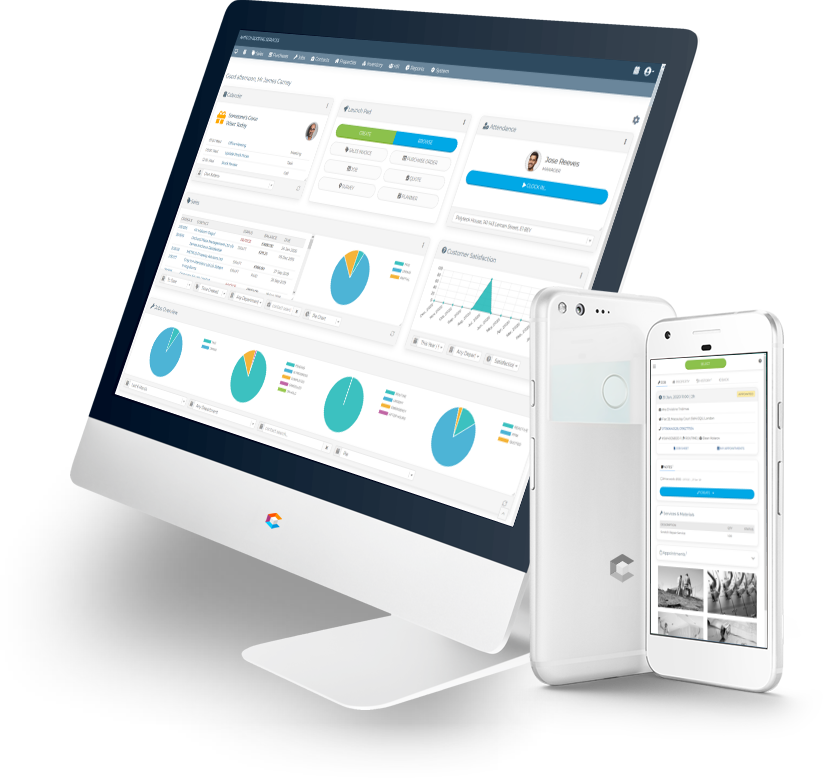Construction
Transforming Construction Management with Nettware ERP Software
In the construction industry, managing multiple projects, coordinating with various stakeholders, and maintaining cost efficiency are significant challenges. Enterprise Resource Planning (ERP) software offers a comprehensive solution to these complexities by integrating diverse business processes into a unified system.
The Role of Nettware in Construction
Nettware software is designed to consolidate and automate various business functions, providing real-time data and insights that enhance decision-making and operational efficiency. For construction businesses, our Nettforce or Nettforce FM solutions can significantly improve project management, resource allocation, financial control, and overall operational performance.
Key Features of Nettware for Construction Businesses
Project Management: Construction projects often involve multiple phases, from initial design to final completion. ERP software provides tools for planning, scheduling, and tracking project progress. This ensures that projects stay on schedule and within budget, while also allowing for real-time adjustments as needed.
Resource Management: Effective resource management is crucial in construction to ensure the optimal use of labor, materials, and equipment. ERP systems enable businesses to allocate resources efficiently, track usage, and minimize waste. This leads to better resource utilization and cost savings.
Inventory Management: Managing construction materials and equipment is essential for avoiding project delays and cost overruns. ERP software automates inventory tracking, ensuring that necessary materials are always available and accurately accounted for. This reduces the risk of stockouts and overstocking.
Financial Management: Accurate financial management is vital for profitability and compliance in the construction industry. ERP systems offer robust financial modules that handle accounting, budgeting, billing, and financial reporting. By automating these processes, businesses can reduce errors, improve financial visibility, and ensure compliance with industry regulations.
Bid Management: Preparing and managing bids is a critical aspect of construction projects. ERP software streamlines the bidding process by providing tools for creating, submitting, and tracking bids. This helps in ensuring competitive and accurate bids, increasing the chances of winning contracts.
Document Management: Construction projects generate a large volume of documents, including blueprints, contracts, and permits. ERP software provides a centralized platform for storing, accessing, and managing these documents. This ensures that all stakeholders have access to up-to-date information and reduces the risk of document-related errors.
Customer Relationship Management (CRM): Building strong relationships with clients is essential for long-term success in the construction industry. ERP software with integrated CRM capabilities allows businesses to track client interactions, manage service requests, and personalize communication. This helps in providing a tailored customer experience, fostering loyalty, and encouraging repeat business.
Compliance and Risk Management: Staying compliant with industry regulations and managing risks are critical for construction businesses. ERP systems provide tools for tracking regulatory requirements, safety standards, and risk assessments. This helps in ensuring compliance and minimizing risks associated with construction projects.
Benefits of Implementing ERP Software
Increased Efficiency: By automating routine tasks and integrating various business processes, ERP software significantly boosts operational efficiency. This allows employees to focus on more strategic activities, improving overall productivity.
Enhanced Accuracy: Manual data entry and fragmented systems are prone to errors. ERP software minimizes these errors by providing a single source of truth, ensuring data accuracy and consistency across the organization.
Improved Project Management: With real-time access to project information, work order status, and inventory levels, businesses can plan and execute projects more effectively. This reduces downtime and ensures that projects are completed on schedule.
Cost Savings: By streamlining operations and improving efficiency, ERP software can lead to significant cost savings. Reduced errors, optimized resource utilization, and improved process efficiency all contribute to lower operational costs and higher profitability.
Scalability: As construction businesses grow, their operational needs become more complex. ERP software is scalable, allowing businesses to add new modules and functionalities as needed. This ensures that the system can grow with the business, supporting expansion and diversification.
Better Decision-Making: Data-driven decision-making is essential in today’s competitive landscape. ERP software provides powerful analytics and reporting tools that offer insights into various aspects of the business. These insights enable businesses to make informed decisions, optimize processes, and identify growth opportunities.
Choosing the Right ERP Solution
Selecting the right Nettware solution is crucial for maximising its benefits. Construction businesses should consider factors such as industry-specific features, ease of use, scalability, and vendor support. Additionally, involving key stakeholders in the selection process and conducting thorough needs assessments can ensure that the chosen ERP system aligns with the business’s goals and requirements.
In the construction industry, Nettware is a transformative tool. By streamlining operations, improving accuracy, and providing valuable insights, Nettforce and Nettforce FM solutions enable businesses to enhance efficiency, boost customer satisfaction, and drive growth.
As technology continues to evolve, construction companies that leverage Nettware will be well-positioned to stay ahead of the competition and achieve long-term success.

